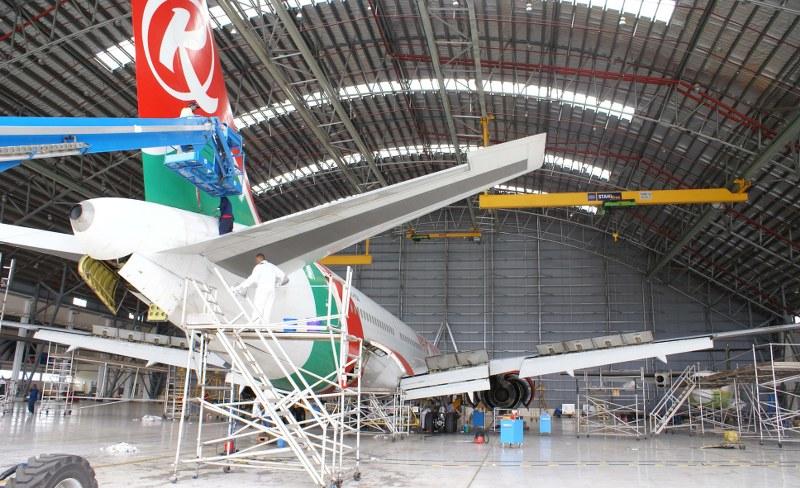
Kenya Airways is looking to recapitalize and boost its fortunes while also ramping up its MRO business to attract more third-party customers. The revelations were announced at an investor briefing held in Nairobi recently.
At a recent investor briefing held in Nairobi, the airline reported a 998 million Kenyan shilling ($6.79 million) operating profit in the first half of 2023—its first in six years. This was an improvement of 120% compared to the same period last year. Kenya Airways CEO Allan Kilavuka said passenger numbers were up by 43% to 2.3 million, with a 56% increase in available seat kilometers. The group’s revenue grew by 56% to 75 billion Kenyan shillings ($510 million).
“We have seen a 28% increase in frequencies across our network which has led to about 58% in capacity growth and this is very exciting for us,” said Kilavuka.
On the technical side, Kilavuka sees MRO as a key focus area. Kenya Airways Technical offers a range of engineering and maintenance capabilities covering aircraft and aircraft components, but Kilavuka believes there is room to grow the third-party business.
“We are looking to invite other airlines to continue using our MRO facility, especially for specific and specialized work like component MRO,” said Kilavuka. “These are the areas we are focusing on.”
In the wake of the global supply chain’s current state, MROs in Africa are facing the same challenges as other global regions. Parts and material supply chain challenges have put pressure on turnaround times and maintenance costs. Local MROs must now adapt to smart solutions in times of disruptions. A prime example is Ethiopian Airlines’ new joint venture with Boeing to manufacture aircraft parts.
Kilavuka sees plenty of opportunity for more MRO work. “The problem is, we don't have sufficient capacity to cover hours and additional third-party work, so we need to expand that,” he said.
Currently, technical services at the airline’s MRO arm extend from line maintenance to heavy checks.
In the meantime, Kenya Airways is pushing ahead to restructure the balance sheet and improve the value of the company for any strategic investor looking to recapitalize the company. Kilavuka said the positive results confirmed the airline’s operational viability, but its improved performance was negated by a 17 billion Kenyan shilling ($115.8 million) impact on foreign exchange losses on monetary items, loans and leases. The legacy debt burden is a major concern holding the airline back.
Kilavuka added that recapitalization of the business was vital: “This is important because it will help to deal with the legacy debt that we have and therefore eliminate the legacy concerns that we continue to have for the longest time. We are well on our way to identifying an investor or strategic investor.”





